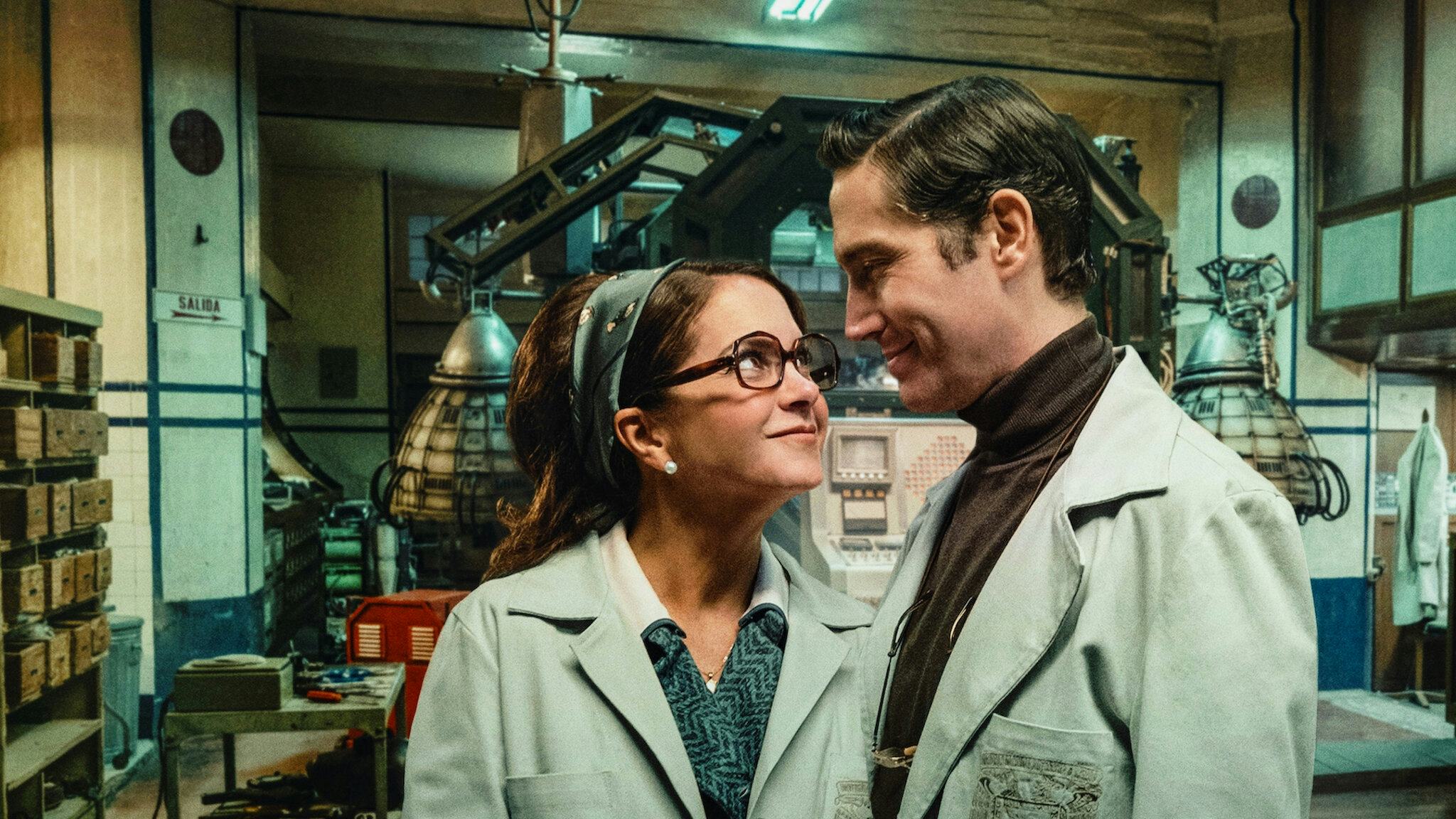
Joining the likes of ARQ, The Adam Project, and last year’s underrated Time Cut, Our Times (Nuestros Tiempos) is the latest Netflix movie to explore the concept of time travel. Instead of thwarting megalomaniacal leaders or fleeing serial killers, however, the Mexican original grounds its science fiction in something a little more socially conscious.
Directed by Chava Cartas — whose eclectic resume ranges from the Acapulco adaptation of Gossip Girl to Day of the Dead horror MexZombies — the low-budget affair centers on Nora (pop idol Lucero) and Hector (Benny Ibarra), a seemingly happily married pair of physicists who’ve spent years working on a top-secret project with the Universidad Nacional Autónoma de México. Of course, this being 1966 and all, the credit isn’t exactly shared equally.
“If you were to get your husband to ask, he’d be given that information immediately,” Nora’s told after putting in one particular request, exemplifying how the academic world was very much considered a man’s game. “Listen sweetheart” and “No, no, honey pie” are just a few of the patronizing responses that routinely get thrown her way, too.
Without any results to show for their efforts, though, the curious steampunk-esque contraption they plan to “turn physics upside down” with runs the risk of losing its funding. It’s only a last-minute brainwave from Nora which earns the duo a reprieve and the chance to truly test its time-traveling capabilities. But instead of sauntering 15 minutes into the future, they accidentally hurtle 59 years on to 2025.
A fried transducer — the actual science here is almost comically vague — ensures they’re unable to hurtle immediately back. Cue some low-stakes fish-out-of-water hilarity as the pair get to grips with the modern world, whether it be society’s obsession with mobile phones (“a machine that hypnotizes them?” they ponder), the fully-functioning subway system whose construction had only been announced earlier that day, or the advancement in condoms. “Did you say they were flavored?” asks Nora, proving Lucero has lost none of her comic timing since her last screen appearance 20 years ago.
Indeed, forget the idea of journeying from the Swinging Sixties to the present day in one fell swoop. Our Times’ most impressive feat is convincing its leading lady to resume her acting career. Known as La Novia de América (the Americas’ Girlfriend), the multi-talent not only gets the lion’s share of the laughs — see the brilliantly deadpan reaction to hearing a party anthem titled “Baby, Shake That Booty For Me” — she also convinces whenever the lightweight caper tries to dig a little deeper.

Of course, with only 90 minutes at its disposal, Our Times can’t go much beyond surface level – this is one of the rare occasions when you wish a Netflix running time had lasted longer. Nora and Hector are given barely 24 hours to form life-changing opinions, and indeed decisions, about contemporary society — the former overjoyed at the advancements in female equality, self-expression, and sexual liberation; the latter horrified it’s no longer a man’s world.
Hector’s descent into toxic masculinity feels particularly rapid. One minute he’s championing his wife’s academic credentials, the next he’s gatecrashing her International Women’s Day speech with the kind of rhetoric Harrison Butker would be proud of (“Be respectable but not arrogant. Laugh but don’t cackle. Look around but demurely...”). As he drowns his sorrows with a bunch of other sexist sad sacks equally perturbed at how you “can’t even pat women on the shoulder,” the physicist appears destined to start a right-wing podcast.
Just as clunky are the film’s attempts to tap into Gen Z, particularly the scene when Nora eavesdrops on two party girls who converse like they’re deliberately trying to antagonize the anti-woke. “Make up your mind, male or female?” one asks. “I don’t go by gender, I go by vibe,” comes the reply. It’s fair to say subtlety isn’t exactly the film’s strong point.
Neither is its messaging which becomes frustratingly mixed thanks to a finale which feels disappointingly regressive compared to all the empowering strides made before. Sharing little chemistry, Nora and Hector never really justify why their romance is given as much gravitas as their equations. And with such a mansplaining manchild at its center, their love story isn’t as celebratory as the film appears to believe, either.
Still, when it recognizes its heroine alone is much worthier of center stage, the film thrives. Ably assisted by the likes of Julia (Ofelia Medina), a former student-turned-university dean whose career trajectory gives her even further impetus to adapt to her new surroundings, and Alondra (Renata Vaca), the great-niece who introduces her to the wonders of shopping malls and sex toys, Nora’s journey of self-discovery is both a joy to watch and a much-needed reminder the modern world might not be so terrible after all.







